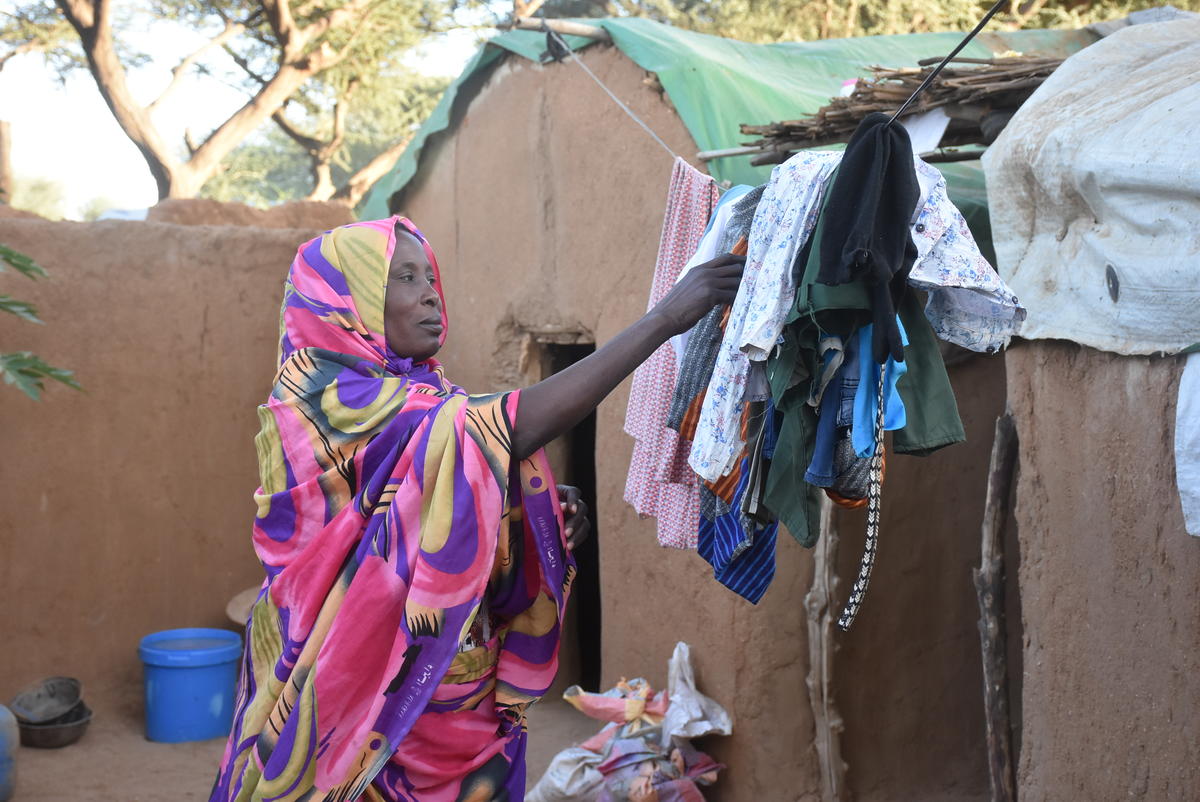Chad: Bombing close to Sudanese border forces UNHCR to withdraw for the day
Chad: Bombing close to Sudanese border forces UNHCR to withdraw for the day
Aerial bombing overnight and this morning in West Darfur, Sudan, close to the border with Chad, has forced UNHCR to withdraw its team caring for newly arrived refugees in the Birak area away from the insecure border. They will return immediately the situation calms down.
Last night, seven refugees from West Darfur crossed the border into Chad carrying a 55-year-old woman who they said had lost both her legs during an alleged overnight bombing of Aro Sharow camp for internally displaced people (IDPs), north of Jebel Moon in West Darfur. The woman later died at Birak's health centre. Normally there are 4,000-5,000 IDPs at the camp, but there are unverified reports that most had fled after bombings around Abu Suruj, Siliea and Sirba in West Darfur earlier this month. The refugees who carried the injured woman to Birak said more people would now be fleeing to Chad. We have no confirmation or further details of the alleged bombing raid, but bombing could be heard from Birak. This highlights the extremely vulnerable situation of the refugees and of the humanitarian workers helping them.
For protection and security the refugees need to be moved urgently away from the border. We are still discussing the transfer to existing camps near Guéréda with the Chadian authorities.
Over the weekend, along the border we carried out another assessment mission to the Birak and Korok areas to locate newly arrived refugees from West Darfur. We now estimate there are at least 10,000 new arrivals since 8 February. Most of the refugees are in Figuera, with smaller numbers in Birak, Djange and Korok. But more arrivals are still expected and with the fresh bombing we can expect more displacement in West Darfur. We have no further details at the moment.
While waiting to be transferred to camps further inland in Chad other humanitarian organisations carried out a one-off distribution of supplies to the refugees including blankets, plastic sheets, jerry cans, mats and soap. High energy plumpynut supplies were given for malnourished children. Water supply is difficult at the border with some refugees having to walk several hours a day to find water.
UNHCR is registering vulnerable cases such as unaccompanied and separated children, pregnant women, the elderly and sick refugees. Some cases have been transferred to the hospital in Guéréda. We are also interviewing women who have suffered sexual abuse.
Some refugees have brought supplies with them from Sudan, others have nothing. The majority of the new arrivals had already been internally displaced in West Darfur. A group of women the UNHCR team interviewed on Monday said they tried to return to Silea in West Darfur to collect household goods but were stopped from returning by the Sudanese army or the Janjaweed militia.
Cameroon - over the weekend we started moving Chadian refugees who had fled conflict in the capital N'Djamena from Madana transit site in Kousséri in Cameroon to Maltam 1 camp, located 35 km away. So far, 1,400 refugees have been transported to the new camp with more planned to be moved on Thursday. A pre-registration exercise undertaken on Saturday by UNHCR teams and the Cameroon Red Cross, showed that 20,000 people want to be relocated to Maltam 1.
Refugees told our teams that they still don't feel it's safe to return to N'Djamena. Chad declared a state of emergency last week following the unrest earlier this month.
Upon arrival in Maltam 1, refugees received relief items from UNHCR including blankets, mats, jerry cans, cooking sets, soap and wood for heating. The World Food Programme gave rations including rice, sorghum, beans and cooking oil.
An estimated 30,000 refugees fled N'Djamena earlier this month and found refuge in Kousséri on the Cameroon side, over the Chari River.









